I often receive emails asking how to help kids learn to sound out words. Many times, it’s because kids struggle to blend together the sounds in the word. For example, they may sound out the individual sounds in a word, like /l/ – /o/ – /g/ and then say something like, bat. Ugh. And this can be very frustrating for the adult and the child.
What can be done to help kids learn how to sound out words? Before we decide to beat our head against a wall, let’s explore some ideas together!
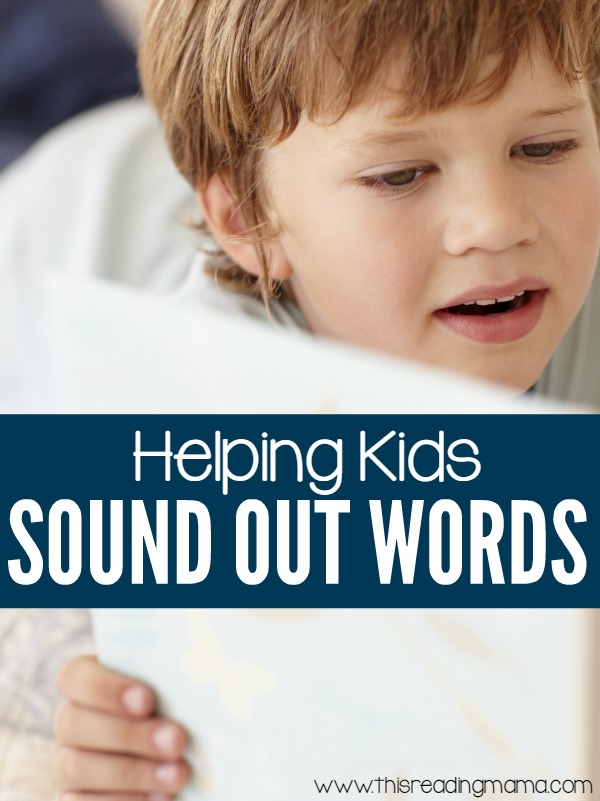
Before I get too far, I want to share just two warnings, if you please.
1. First and foremost, you want to make sure your child is developmentally ready to sound out words. This is key. If kids aren’t developmentally ready, sounding out words will be nothing but frustrating for your child and for you. I have a post called How You Know Your Child is Ready to Read and The Measured Mom also has a great list of ways to know when your child is even ready to sound out words.
2. Second, sometimes you can try every trick in the book and your child still struggles to sound out words. Take a deep breath. Keep modeling. Keep playing with sounds. Keep teaching with a multi-sensory approach. Some children really struggle with sounding out words. Be patient and don’t compare your child to another child.
Helping Kids Sound Out Words
When your child/student struggles to sound out words, here are some tips to try. Remember to keep in your mind my three warnings mentioned above. If you haven’t read them, go back and do it!
1. Play with sounds in words. Even though kids may know their letter sounds, seeing the letters in print and attempting to make and blend the sounds all at the same time blows their mind. It can help to take a step back and remove the actual letters and just play with sounds, specifically blending sounds.
In my 7-day reading series, 3 Important Skills Needed for Reading, I address specifically how to do this by playing with rhyming words, playing with syllables, and playing with phonemes {the individual sounds in words.} For our purposes, phonemic blending and phonemic segmenting will be the most helpful for readers who are struggling to sound out words.
2. Get kids writing and spelling. As I mention in my post on invented spelling and in Teaching Kids to Spell, allowing kids to “sound out” their spellings can actually increase their awareness of sounds words.
For example, if your child wants to write the word hat, help her listen for each sound in the word by stretching the word out. {This is called phonemic segmentation.} Then, after the word has been spelled, ask your child to read the word by blending the sounds back together again {phonemic blending.}
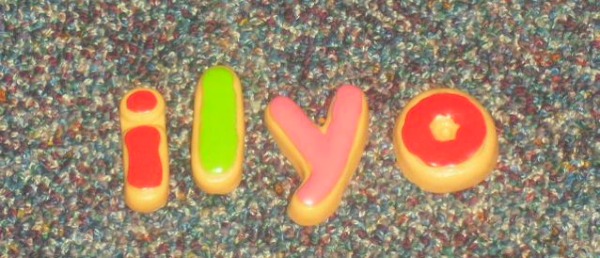
“I love you,” spelled independently by my 4 year old.
So often parents feel that kids shouldn’t spell words until they can spell the word correctly {as taught in some curricula}, but allowing kids to spell by sound can boost kids’ awareness of sounds in words which, in turn, can actually help them become better readers! {You can also read more about this in our 10 week Preschool and Kindergarten Writing Series.}
3. Start with sounds that can be prolonged. Letters don’t all make the same kinds of sounds. In other words, not all letter sounds were created equal {read more about letter sounds here}. Some letters are harder to blend than others. For example, trying stretching out the word pat (p–a–t). Now try stretching out mat (m–a–t). Can you hear how it could be easier to blend together mat than pat?
This is because letter sounds from letters like m, f, h, r, n, s, z and vowels can be stretched or prolonged, making it easier to blend them together. In other words, there’s no break of sound in between them. On the other hand, the letter sounds of c, d, t, and p do not continue their sounds. Try a few sounding out exercises with your child using real and/or silly words with these prolonged sounds like Sam, fan, zom, or nis. Say them slowly at first, then each time you sound them out, say the sounds closer and closer together.
You might enjoy my blog post and video Continuous and Stop Sounds to better understand which letters are best to use for this.
4. Use successive blending. With successive blending, you say and blend the sounds in the word as you go. Successive blending is different than final blending because you don’t wait until the very end of the word to blend the sounds together. Sometimes successive blending is called cumulative blending.
I’ve created a blog post and video all about blending words in this way that can help you see and hear how it’s done.
5. Connect phonics to “sight words.” We often think of sight words {or high frequency words} as being words that “break the rules.” Therefore, we tend to confuse kids by teaching them they need to sound out words, and then saying, “Well, you can’t sound out this word, so let’s just memorize it.”
Instead, help kids see the phonics rules that DO apply to a sight word instead of relying on the unreliable “guess the word” method.
If you want to learn more about this, these blog posts are super helpful:
- Mapping vs. Memorizing {YouTube video as well}
- Mapping with Sight Words
- Seasonal Mapping Mats
More Tips and Activities for Readers:
Short Vowel Foldable Sound it Out Strips
Enjoy teaching!
~Becky

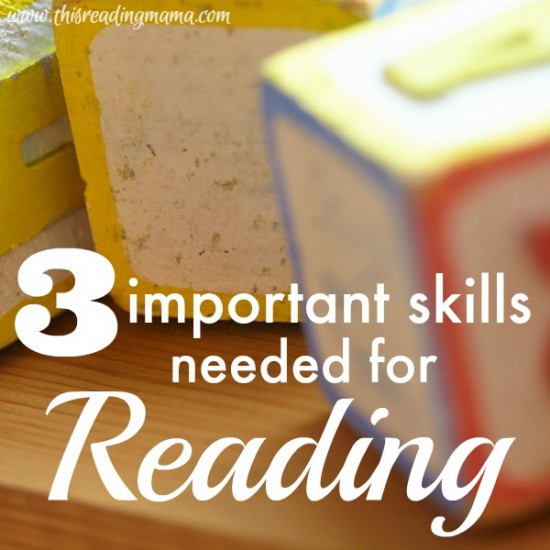
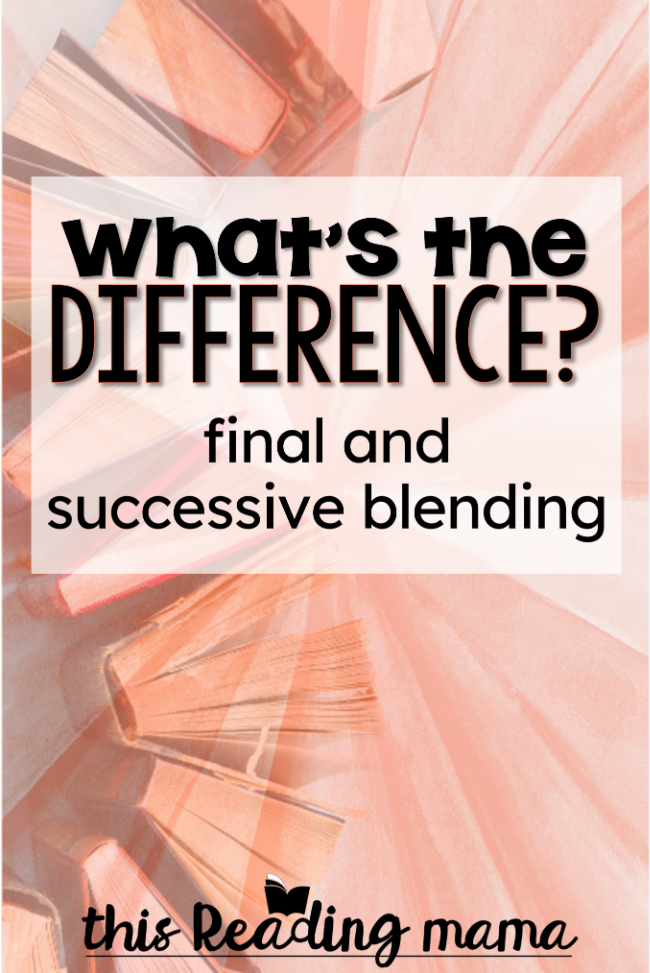
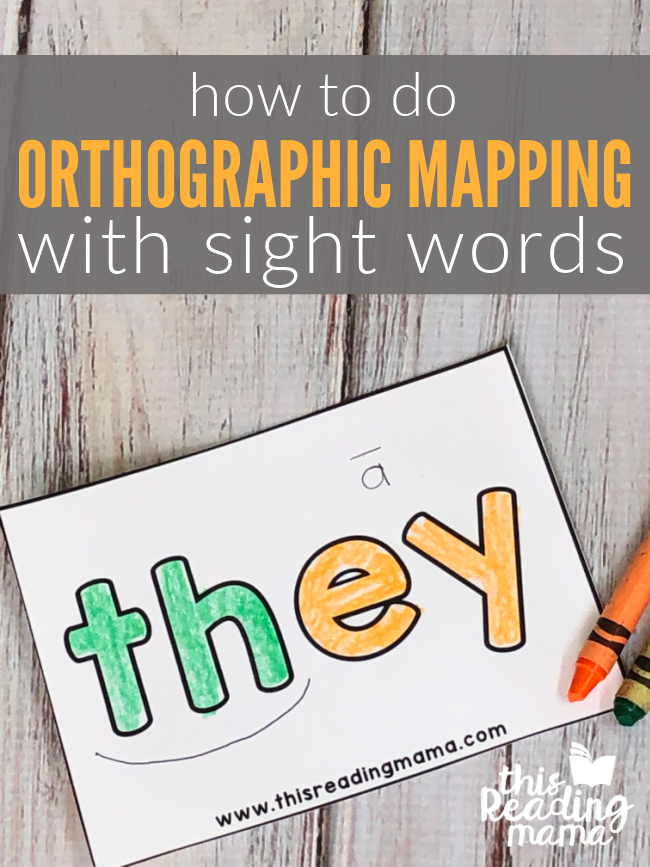

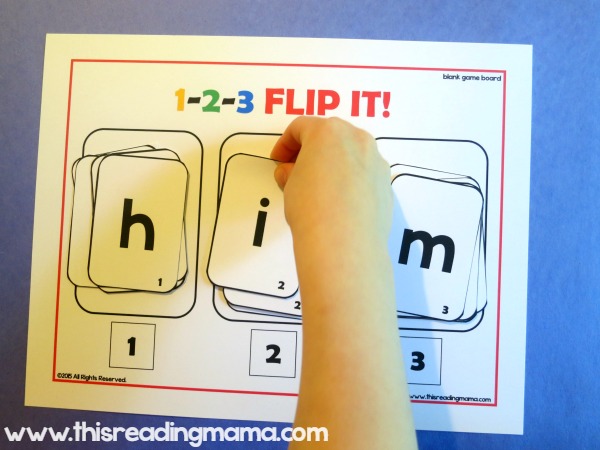
I liked what you said about teaching words that sound alike together. I’ve been trying to help my daughter pronounce her words a little better, but I haven’t been too successful. I think that this might help her a little better and maybe we can start to see some small success.
I need to conduct a workshop for parents on reading . So i need that type of resources.